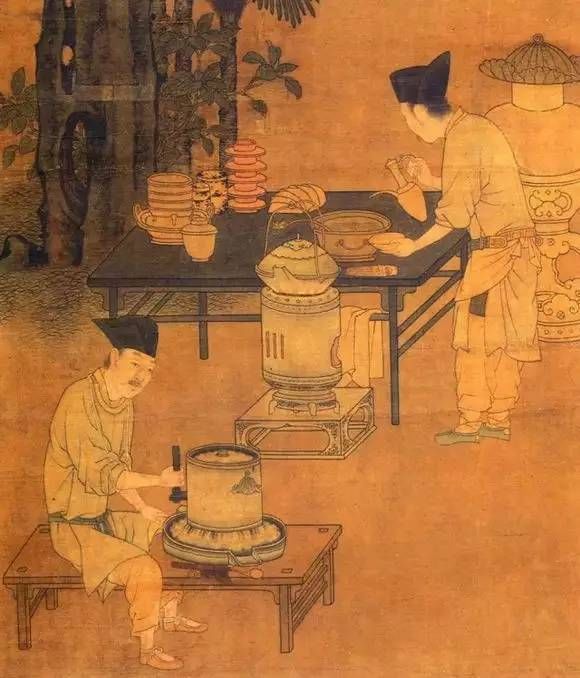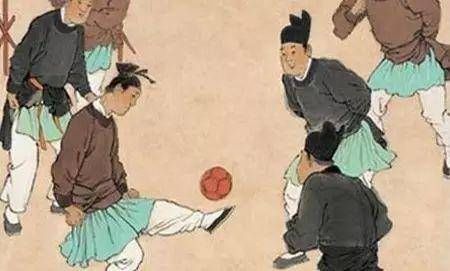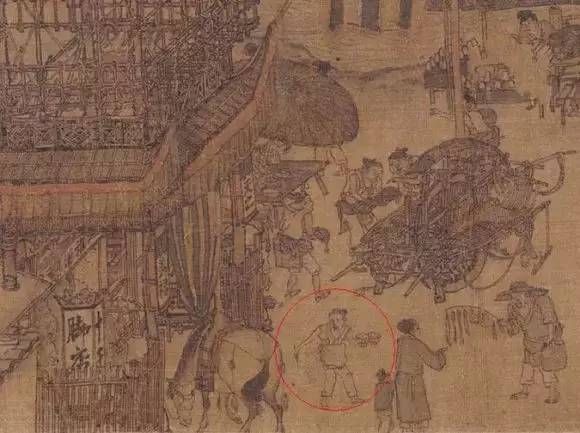Text|Liu Zhongcai
Modern people generally have two ways to spend their weekends, one is to stay at home to share the joy of reunion with their relatives, the other is to go outdoors to get close to nature, Go shopping at the supermarket. The rest of the time is holding the phone, or lying down, or sleeping soundly, as for the rest, it is a bit lackluster.
Song people spend their weekends very differently. The Northern and Southern Song Dynasties lasted more than 300 years. The economic conditions were good, the people of the gentry lived well, and there was a lot of spare money in their hands, so the weekends were very particular.
The weekend of the Song Dynasty people usually starts from Mao Shi, and the time teller walks into the streets on time and strikes the gong rhythmically to remind people that it is time to get up. Afterwards, everyone woke up from their sleep and put on their clothes. According to “Dream Lianglu”, the Song Dynasty people did not open the stove in the morning and did not have the habit of making breakfast. Therefore, after washing, each family will choose to go out to the street for breakfast.
The breakfast industry in the Song Dynasty was extremely developed. In Bianliang City and Lin’an City, all kinds of breakfast shops were lined up along the streets, with a length of dozens of miles, and they were cheap and rich. An ordinary person only needs to spend ten or twenty copper coins to eat meat food such as filling the lungs and stir-frying the lungs. The porridge and rice are more sophisticated and rich, including crispy and crisp ring cakes, as well as smooth yunying noodles, such as bamboo shoot steamed buns, crab meat steamed buns, hibiscus cakes, chrysanthemum cakes, and so on.

Song Dynasty people like sencha and have the habit of drinking morning tea. If you drink alcohol the night before, drinking a bowl of Erchen soup is the best choice. Speaking of this “soup”, also known as “cooked water”, it is the name of the drink in the Song Dynasty. Soup drink started in Tang Dynasty and became popular in Song Dynasty. “Er Chen Tang” is named for the use of dried tangerine peel in the soup. A cup of Erchen soup in the morning has a refreshing effect. The famous poet Ouyang Xiu liked “Er Chen Tang” very much, and there was even a poem that praised it, “On gong can cure hundreds of ailments, and long-term clothing is better than flax.”

After breakfast, Song Dynasty people officially enjoy their weekend life. Strong men with good physical strength will team up to play Cuju on the court, while weak scholars choose to play “Chuiwan”, which is the ancient version of golf. Men, women and children who don’t like sports flock to the streets to watch juggling, listen to music, visit antique stores, buy street stalls, and play until noon. When adults and children are tired, the family starts the restaurant mode again.

The restaurants in the Song Dynasty were huge, both public and private. “Tokyo Dream Hualu” records: “There are 72 restaurants in Jingzheng, and the rest are called footholds.” That is to say, in Bianliang City, there are 72 restaurants above the scale alone, and the rest are not counted. The number of small restaurants. The dishes in the restaurant are quite particular, and the names are also unique. For example, hand-washing crab and oriole are the favorites of the common people. While eating, the people of the Song Dynasty also liked to have a few drinks. Those who have a lot of alcohol can choose to drink steamed wine and shochu. Those who pay attention to health can choose viper wine and rice wine. In addition, there are yellow oranges specially prepared for women on the counter of the restaurant. Wine, lychee wine.
The people of the Song Dynasty did not have the concept of taking a nap. At that time, drinking afternoon tea and watching dance dramas was an important way to pass the good time in the afternoon. When drinking tea, everyone can chat about the twelve constellations, because the research on constellations in the Song Dynasty has been quite in-depth. Those who prefer a lively life can go to the theater for entertainment. In the “Tokyo Dream Hualu”, it is said that there were ten “Washe Goulan” in the Song Dynasty, and there were “more than fifty large and small goulan” in Bianjing alone, and the largest one could accommodate thousands of people. , among which there are various repertoires such as small singing, purifying singing, various official tunes, and zaju for consumers to choose.

The afternoon is longer. If you are hungry while listening to the opera and watching the dance drama, you can order takeout directly. In the Song Dynasty, the takeaways were mainly soups made of fresh vegetables, such as hoof clear soup, pig bone clear soup, and mixed soup, which were the most popular among the public. The emergence of take-out has also spawned a large number of delivery staff. Zhang Zeduan’s “Across the River During Qingming Festival” depicts a delivery boy, holding a food box and wearing an apron on his waist, hurriedly walking through the crowd, and recorded the takeaway scene in Bianliang City at that time with exquisite workmanship.
The reason why the takeaway is mainly based on Qing soup is that the curfew system has been abolished in the Northern Song Dynasty. The supper in the Song Dynasty is definitely a thriving in the world of fireworks. Meng Yuanlao said in the “Tokyo Menghualu”: ”The night market does not reopen until the third watch is over, and the fifth watch is opened again.” It is also recorded in the “Menglianglu” that, on Lin’an Street, business is continuous day and night, and three or four drums are delivered at night. Tourists are scarce. The content of supper is no less than today. The staple food includes Sophora japonica rice, meat wheat rice, and prawn noodles with sub-materials. The sweet soup includes dried papaya soup and Shuizhi soup. If it is in summer, there are snow bubble bean water, snow bubble plum wine, and iced lychee paste. In June, there are people selling ice and snow cold water at alleys and junctions of Bianliang and Qiaomen Market.
It was almost early morning when they returned home after supper, and the literati and writers who had not had enough time would take advantage of the tea to splash ink, write lyrics and draw pictures to record the fun of the weekend, while women and children stepped into the night to sleep, The mood of the weekend is engraved in the memory.